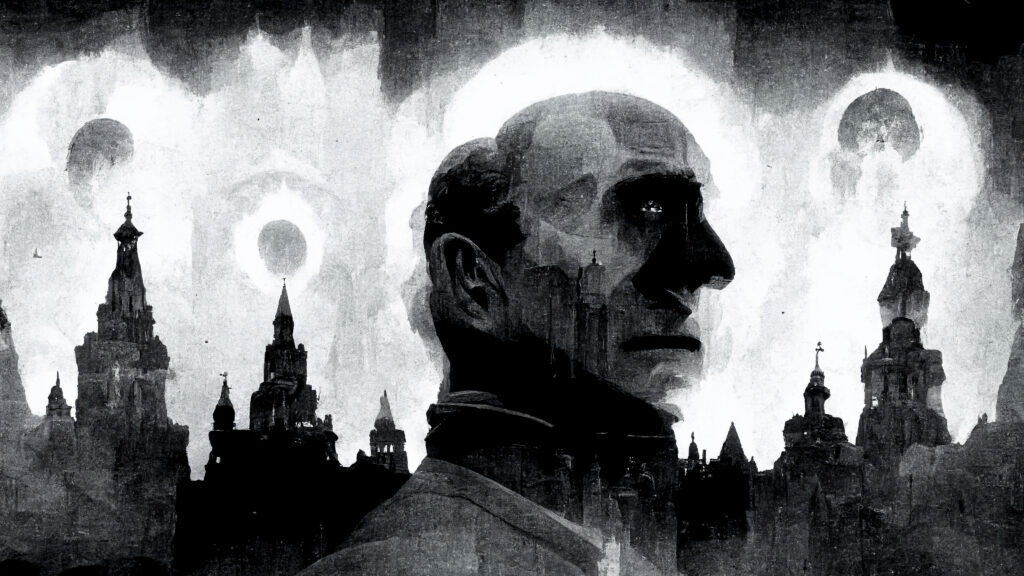The Russian Riddle
Putin was inflexible, obtuse, and focused on issues he felt strongly about. Tucker Carlson failed to get answers to many of his questions, and the two men largely spoke past one another.
Americans are largely forward-thinking people. Russians not so. Novelist Leon Uris wrote, “In Ireland, there is no future, only the past happening over and over again.” The same might be said of Russia, said one pundit. Russians are “passionate believers in their own historical narratives.”
Before the historic interview even took place, many prominent leaders in media and politics were highly critical of Tucker Carlson interviewing Russian President Vladimir Putin. It was to be the first interview Putin gave since the start of the Russian/Ukraine conflict.
- Former congressman and war hawk Adam Kinzinger called Tucker a traitor.
- The country’s left-leaning managerial class has become a jingoistic caricature of the McCarthyism it once denounced. This same group also hopes the American people remain ignorant and forgetful, a hope not entirely misplaced.
- Hillary Clinton referred to Tucker as a “useful idiot.”
Who’s the Useful Idiot Now
Have they forgotten, wonders Christopher Roach in American Greatness, Barbara Walter’s interviewing Fidel or John Miller’s 1998 interviewing Osama bin Laden? This used to be routine, Roach reminds readers.
Who is Putin? What does he think? Why did Russia invade Ukraine two years ago? In the United States, asserts Mr. Roach, “these questions are mostly answered by U.S. government and NATO propaganda, which is repeated by media lackeys to the extent these questions are considered at all.”
Putin Not Devoid of Intelligence, Charm, Strategy
Putin, a Russian patriot, was focused on issues he felt strongly about. According to Carnegie Russia Eurasia Center, since Tucker couldn’t get answers to many of his questions, the two men largely spoke past one another. Instead of frothing at the mouth, continues Roach, Putin exhibited a knowledgeable, sober, cold-blooded, and detail-oriented person.
The tone and content did not fit the myths propagated by the American media and foreign policy establishment, and that is the primary reason why they were so opposed to this interview going forward.
Biden Angry, Muddled
The contrast between Putin and Biden could not have been more dramatic. On the same day that the interview aired, Biden gave an angry, disjointed press conference in response to the special counsel’s claim that he was, essentially, too feeble-minded to have criminal responsibility for mishandling classified documents.
After the interview, the media claimed to fact-check President Putin. But why? What facts were in doubt?
- “It is a fact,” Ukraine became independent in 1991 and split off from the Soviet Union. And it’s also a fact that Ukraine was part of the Russian empire for hundreds of years, and it’s a fact that half or more of Ukraine’s citizens primarily speak Russian including their president.
- “It is a fact,” Ukraine’s pro-Russian president, Viktor Yanukovich, was democratically elected and then ousted in a U.S.-supported coup in 2014.
- It is a fact this led to (or at least preceded) Russia annexing Crimea, as well as separatist movements gaining power in Ukraine’s eastern Donetsk and Lugansk oblasts.
American government’s position calls Russia’s invasion of Ukraine “unprovoked.” If so, argues Roach, this would require the suppression of Russian perspectives on the order of events, particularly between 2014 and 2022.
There are obvious ideological and security-related concerns that would lead many states, including democratic states, to act in response to the situation that prevailed in February 2022.
The United States would never tolerate, for example, a Chinese-led coup in Mexico and the installation of a pro-Chinese leader so that Mexico and China could enter into a military alliance.
But instead of obtaining an authentic understanding, which would admit the possibility that Russia is acting rationally, critics classify Russians as a collective of maniacs and psychopaths, people devoid of justice, restraint, and even basic humanity. Among such a people, there is not much to understand and certainly no good reason to listen to their leader.
Many Ukrainians share the Russian language and culture, which Putin says is a justification for the annexation of Ukraine. Hitler employed similar reasoning in Poland, Czechoslovakia, and elsewhere, and has long been the justification of conquerors. Russia’s long-term policy begun in the 19th century by the Tsars and continued by the Bolsheviks, of “Russification.”
This policy outlawed Ukrainian language and culture and mandated they be replaced with Russian language and culture. Larry Tauton at The Federalist, writes about his own daughter, adopted from Ukraine and wholly Ukrainian. She was taught Russian, not Ukrainian, claims he.
Tauton expresses admiration for Tucker Carlson, given that the Biden administration did everything short of assassinating him to prevent this interview.
“Post-interview, he has been subjected to repulsive personal attacks for doing what any journalist with integrity would do. His position was impossible. On the one hand, he needed to appear tough; on the other, he needed to be fair — all while doing it in the Kremlin.
In the end, Carlson generally opted to get out of the way and let Putin speak, an approach foreign to a compromised media class that is sure we need to hear them more than the subject of the interview. Three years in the making, Carlson had no guarantees. A wrong move, a wrong question, and they might have Brittney Grinered him.”
Tucker was smart enough to understand why Putin wanted this interview.
Why? Because, villain that he is, Putin calculated he had less to hide in Ukraine than does the Biden administration.






